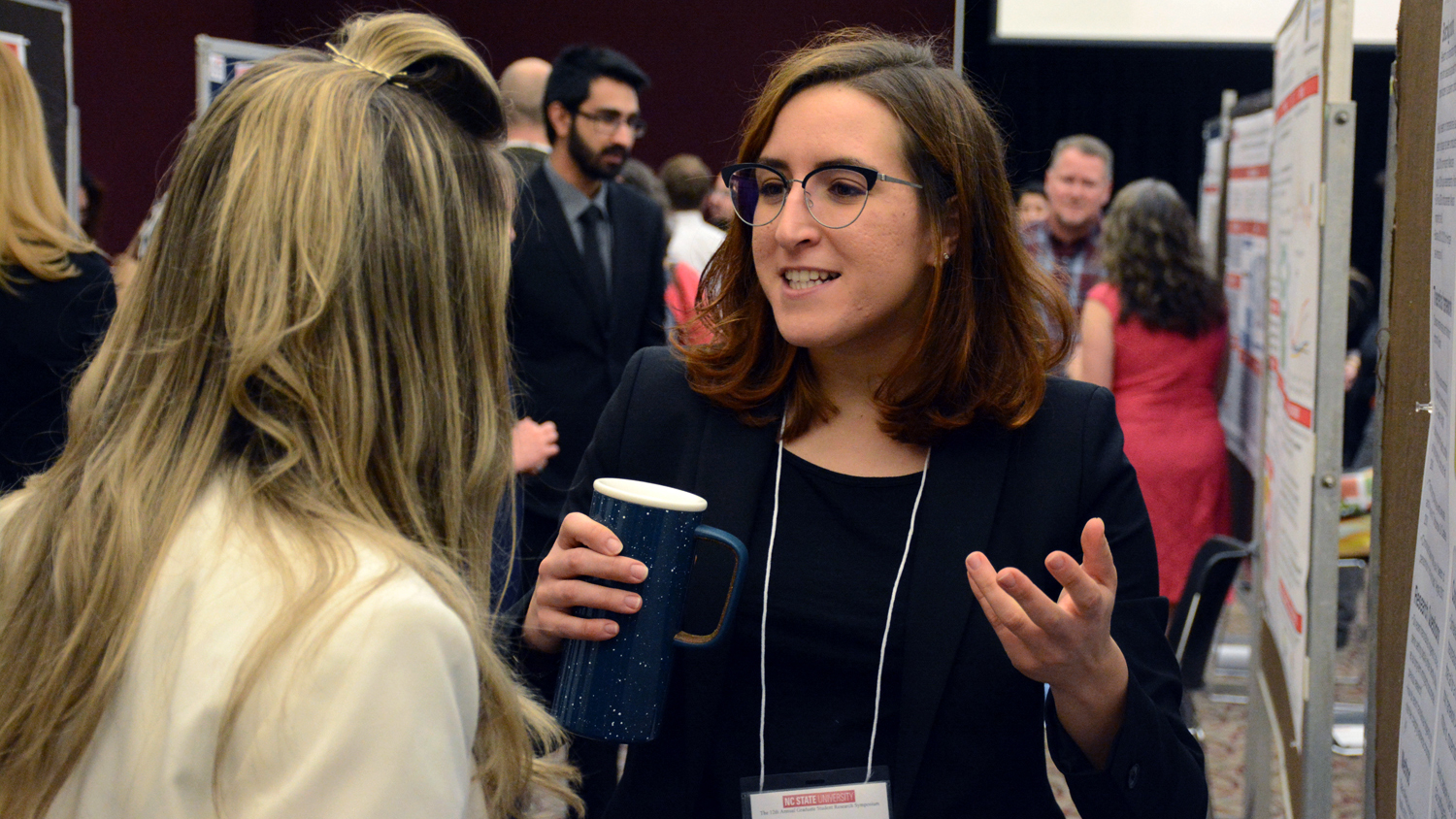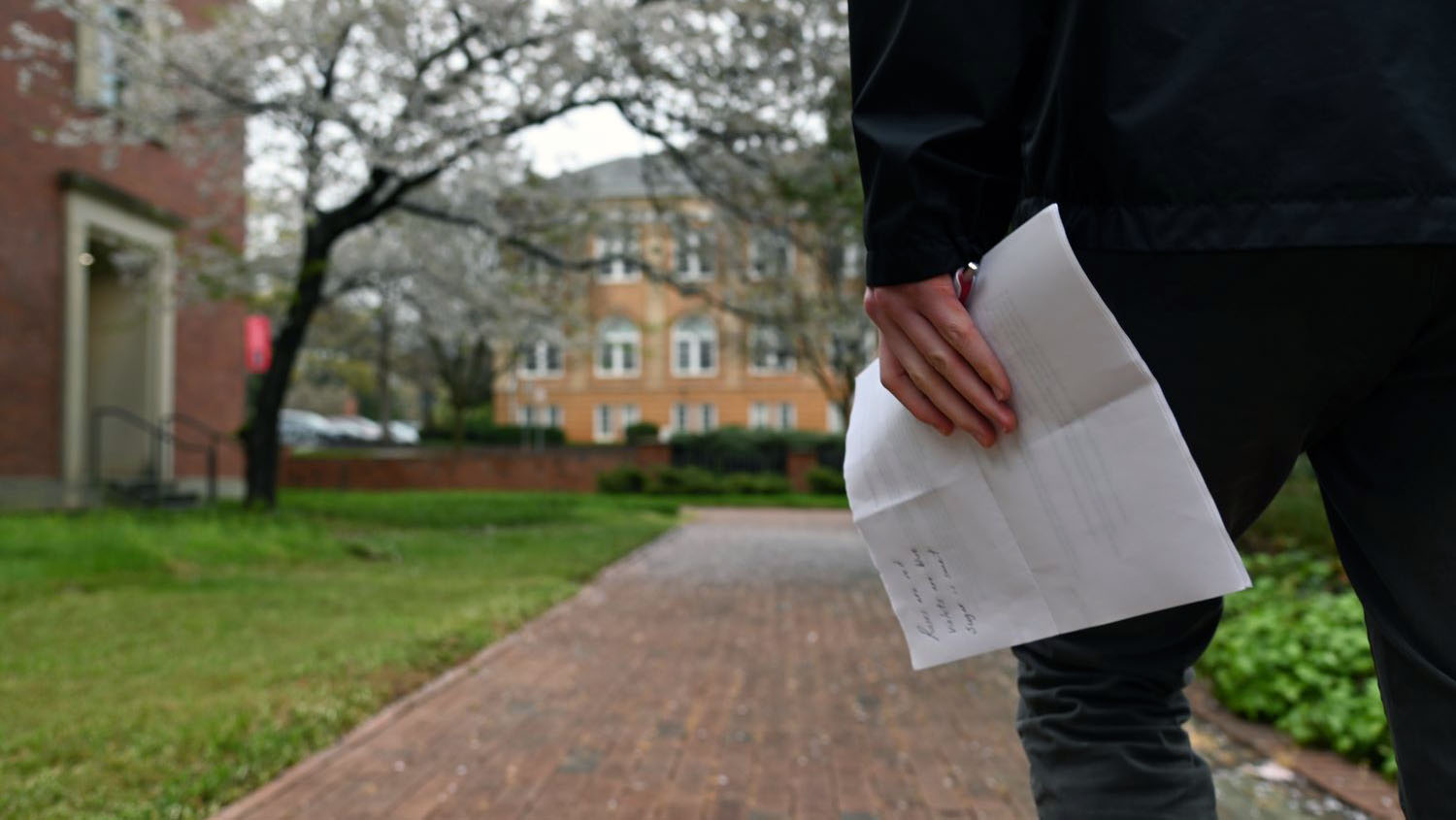Constructing Identity Among Italians at NC State

Each year, NC State is home to about 2,000 international students from more than 100 countries around the world. Cecilia Tomasatti is one of them.
A Fulbright fellow from Italy, Tomasatti studies sociolinguistics in the Department of English. One of her first graduate research projects after arriving in the United States explored how other exchange students were adjusting to life on campus. Using language as a window into their experiences, Tomasatti conducted interviews with not only Italian students, but also faculty, about what it’s like to adapt to another country’s climate, culture and cuisine.
We asked Tomasatti about her research, which she presented at the 2017 NC State Graduate Student Research Symposium. Her poster, “Constructing Identity Among Italians at NC State,” placed second in the humanities category.

Q: What did you study?
Tomasatti: The theoretical background to this study is mainly related to a specific branch of sociolinguistics called discourse analysis, which looks at how one’s linguistic choices can give us insights intowho they are, who they want to be and what socio-cultural background they are referencing.
With this in mind, I started looking at the way in which Italians who were studying abroad at NC State were talking. I was hoping to find how they were positioning themselves in their new environment and how they were blending together the two realities of Italy and the United States.
Q: How did you engage or draw on the experiences of Italian students at NC State in your research?
Tomasatti: Over the first couple of months I was at NC State, I got to know many other Italian students on campus, and it was really interesting to hear about their experiences in the U.S. and how they were settling in as graduate students at NC State. As a linguist, I could not overlook how their stories told not only what happened to them since arriving in the U.S., but also how they familiarized with a very different socio-cultural setting.
Q: What did you find?

Tomasatti: I conducted sociolinguistic interviews with groups of Italian students and faculty, and I focused on how they were using language to recall their experiences. It was amazing to see how most of them gave salience to similar events such as their first days in Raleigh, or their relationships with their family and friends back in Italy — not to mention the stark contrast between the Italian and American cultures. Language is a very powerful tool that all of us have under our belt to express who we are, who we want to be and how we see the world around us.
Q: What are some implications of your research, in regards to students studying abroad or other migrants?
Tomasatti: After having analyzed the linguistic features of the interviews and the broad discourses they entailed, I feel that linking study-abroad students’ experiences to that of other migrants may help shed light on the processes they go through to adapt to a new culture, mindset and society. After all, they are undergoing a fairly similar experience in terms of cultures and societies. I hope this first attempt to look at the Italian immigrant community will help me better understand the dynamics at stake in my forthcoming research on the new waves of Italian immigration to the U.S., where I will be looking at what being Italian in the U.S. means today.
- Categories:


